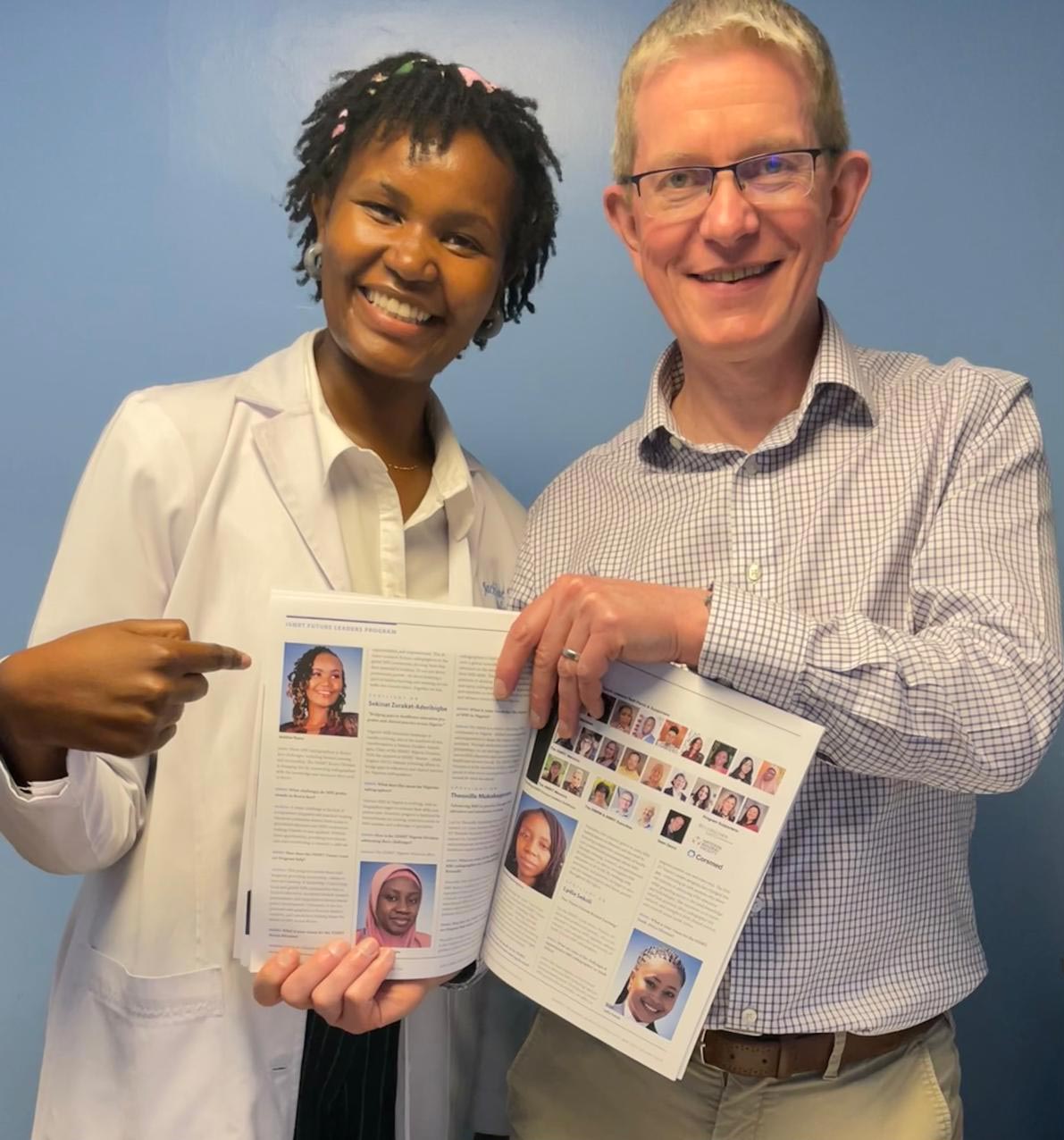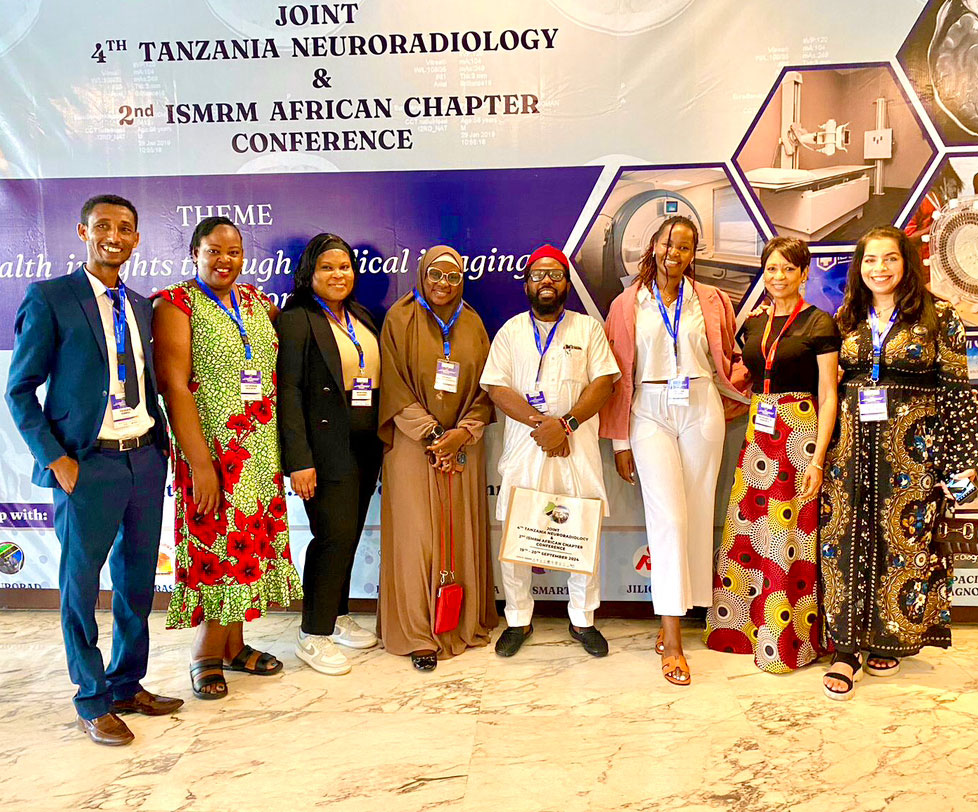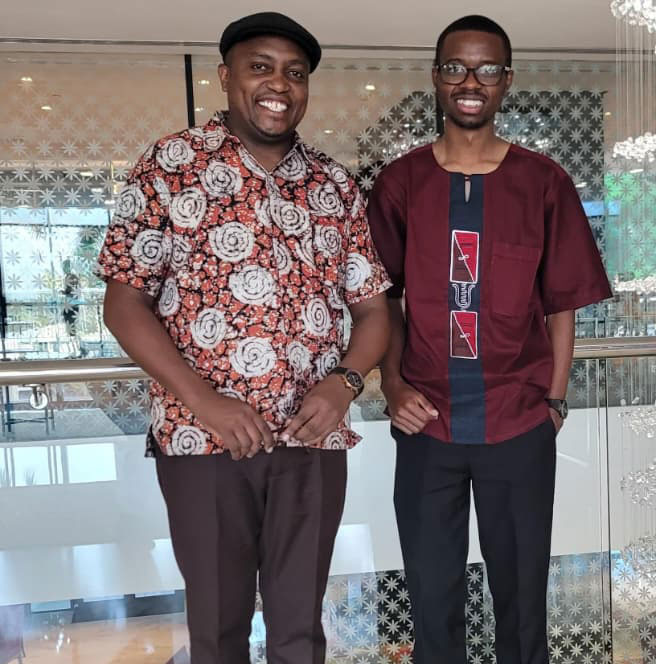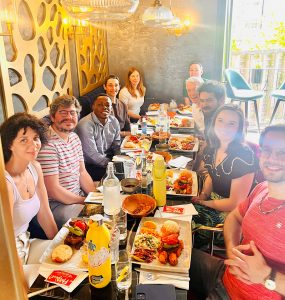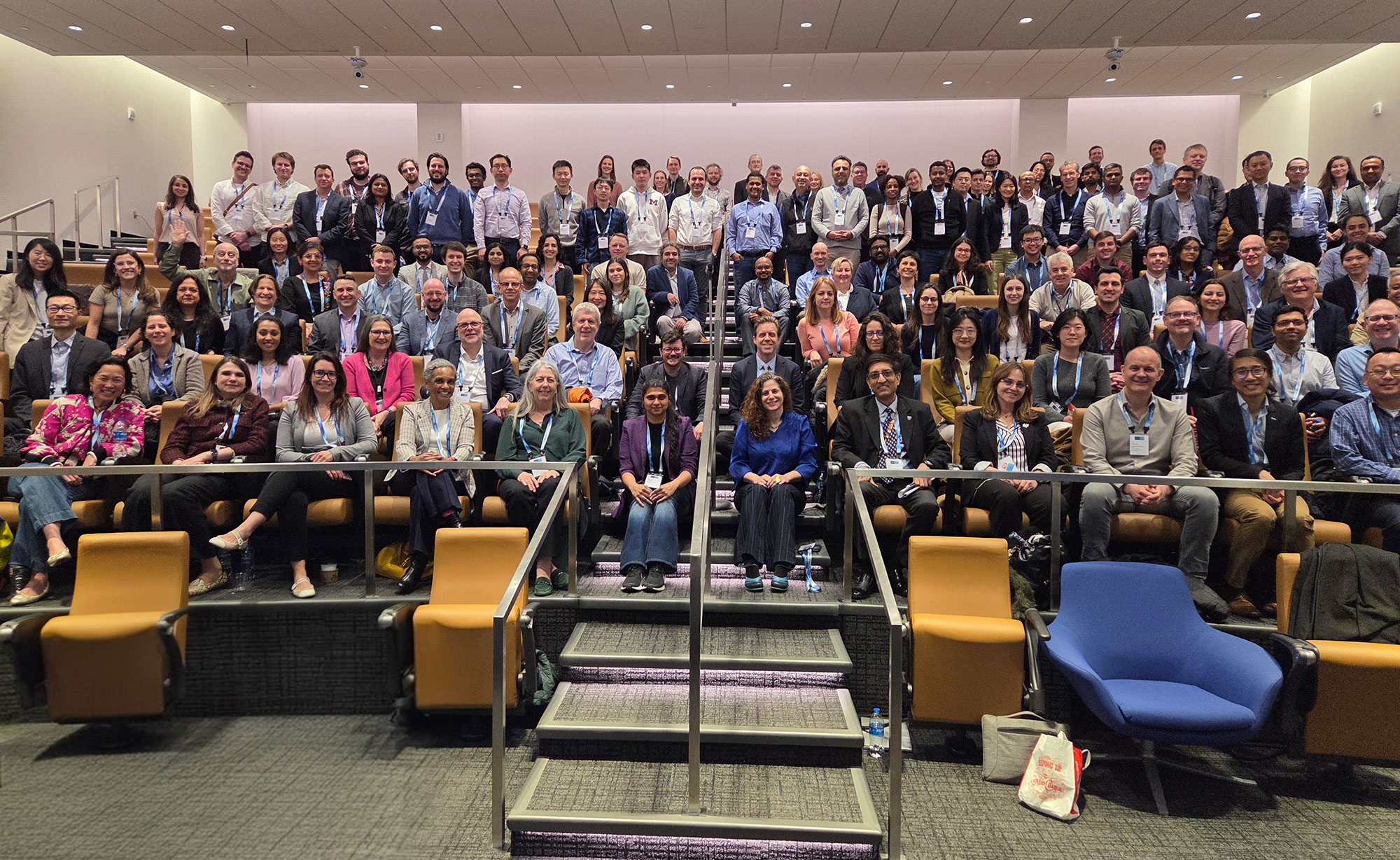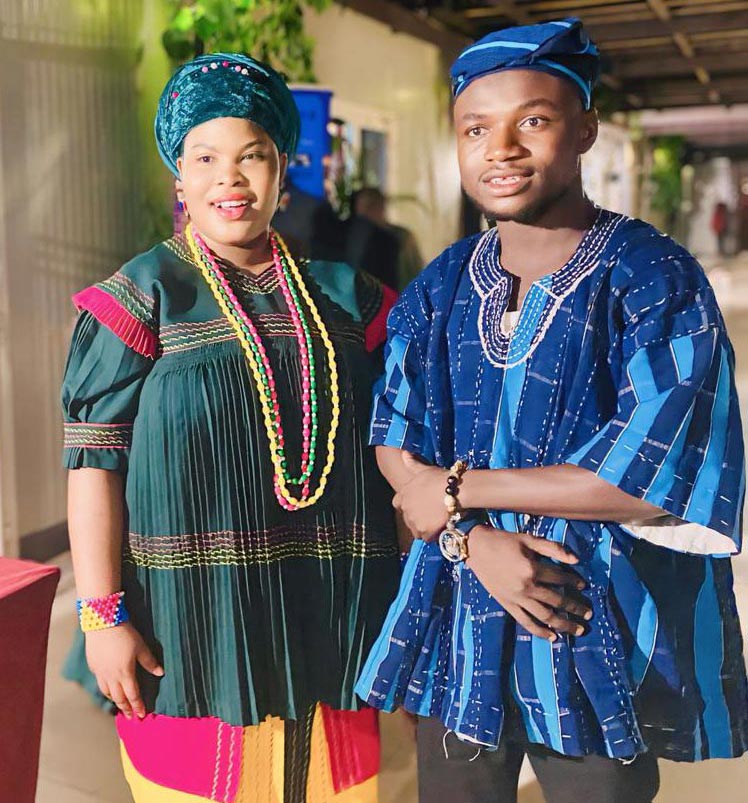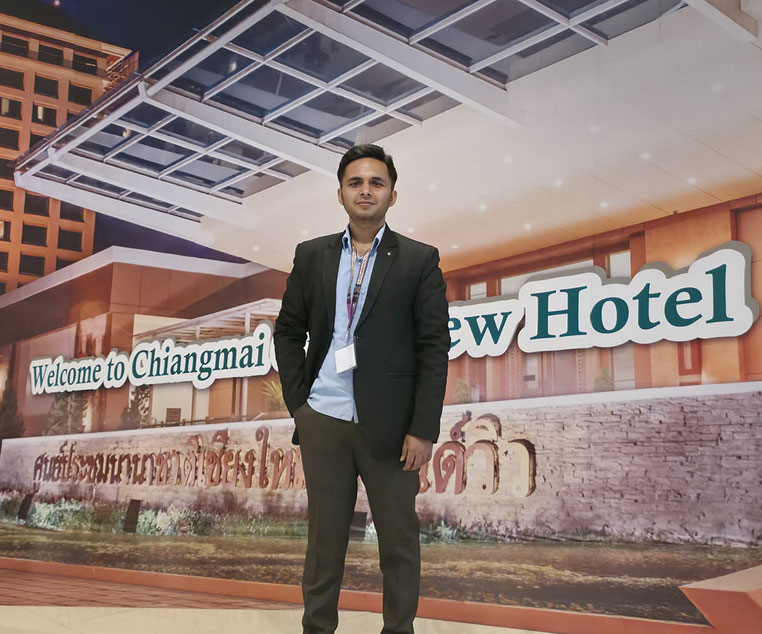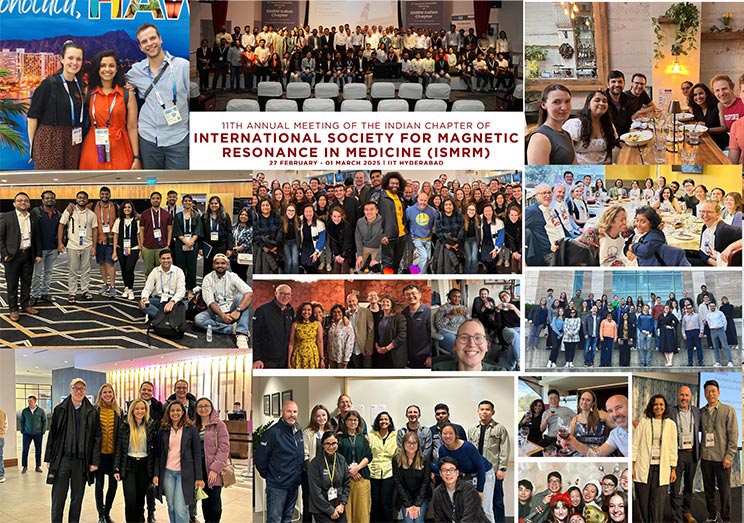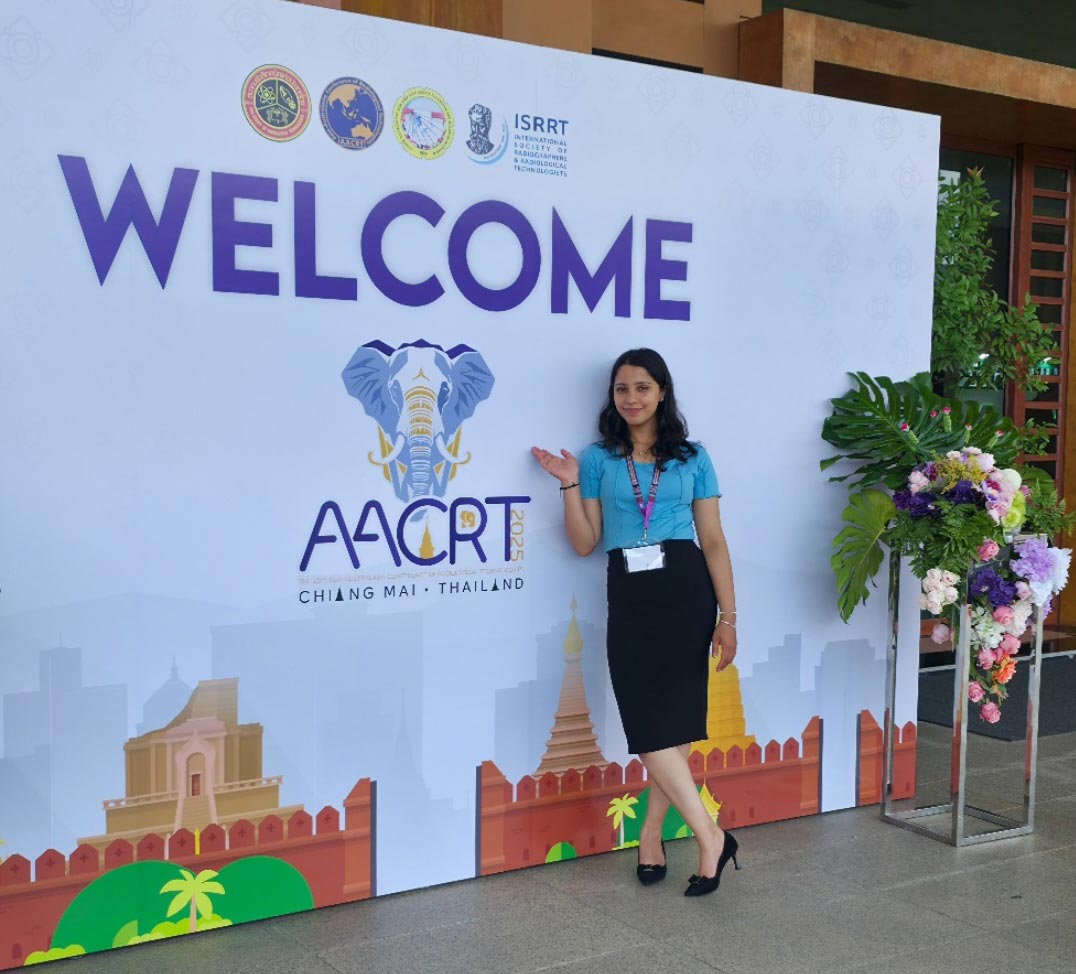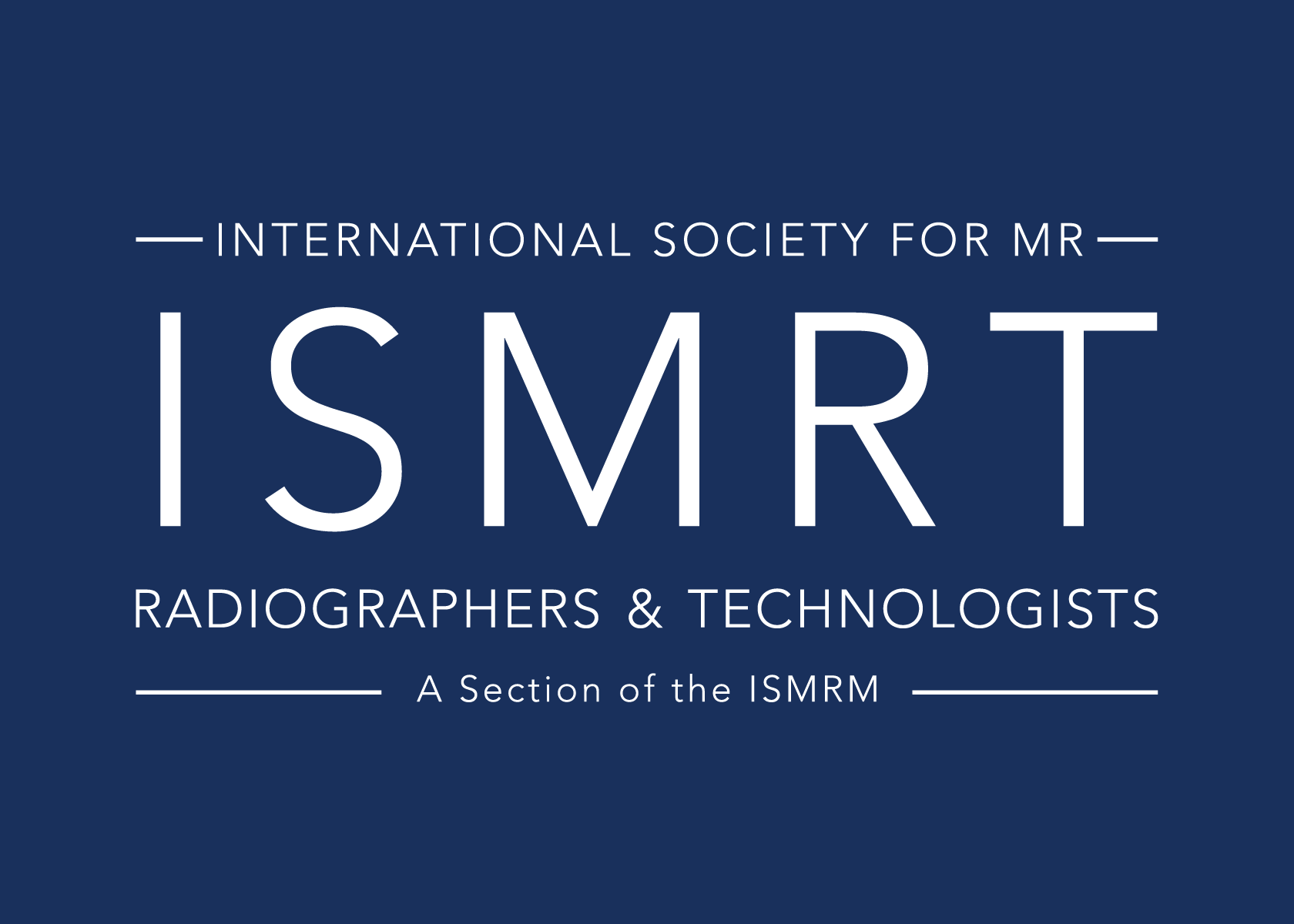Ubuntu, “I am because we are” is more than our 2026 meeting theme; it’s a lived experience across our MR field. Here, we share real stories from colleagues around the world who have seen the power of collaboration in MRI.
Enjoy these stories of how working together shapes discoveries, builds connections, and strengthens our community.
Jackline Thairu – Kenya
When I think about Ubuntu – “I am because we are” – my mind immediately goes back to a chain of people and moments that have shaped me into who I am today. My story in MRI has never been one of walking alone; it has always been the result of hands reaching out to lift me, voices reminding me that I belong, and hearts that believed in me even before I fully believed in myself.
I still remember the early days when MRI felt like a locked door, with no key in sight. In Kenya, the opportunities for structured MRI education were scarce, and most of what I knew came from endless self-study, YouTube videos, and the kindness of colleagues. I often felt small, unseen, and unqualified — as though advancing in this field was something reserved for others, not for me. And yet, that longing to understand MRI, to be better for my patients, never went away.
The turning point came when I met Prof. Derek Jones. In what felt like a simple encounter, he did something extraordinary: he opened a door. He introduced me to the ISMRT Future Leaders Program, and with that one act, he connected me to a world of mentorship, collaboration, and growth that I could never have imagined on my own.
From there, the Ubuntu spirit became even more real in my life. Our mentor Ms. Gail Durbridge helped us establish the ISMRT Kenya Division — not by telling us what to do from afar, but by walking the path with us. Shawna Farquharson became more than a mentor; she held our hands and guided us through the terrifying process of submitting our first abstracts to ISMRM. I remember how uncertain we felt — were we good enough? Was our work even worth sharing? But her encouragement silenced those fears, and not only were our abstracts accepted, but one even won second place. That moment was not just a recognition of the work we had done, but a reminder that we belonged in the global MRI conversation.
At every stage of this journey, I have been carried forward by others. The Future Leaders Program itself is not just about me — it’s about mentoring others. I’ve now had the privilege of mentoring 15 early-career radiographers, watching them step into their own roles as future leaders. And with every conversation, I see the same spark that once was lit in me.
But behind the milestones and achievements lies the vulnerability that fuels my passion: I know what it feels like to be left out, to believe that knowledge and growth are out of reach, to doubt whether one belongs in global spaces. I carry that with me, not as a wound but as a responsibility — to make sure no one else feels that way if I can help it.
Ubuntu reminds me that every step I have taken has been possible because others walked with me. My journey is not mine alone — it is a tapestry woven with the generosity, encouragement, and belief of mentors, colleagues, and friends across the world. And because I am, because we are, my mission now is to pay it forward: to empower more radiographers, to open more doors, and to keep reminding others that they, too, belong. This is what Ubuntu means to me.
Aiman Igwegbe – Nigeria
In September 2024, I was honored to be among the 26 MRI researchers selected out of 121 applicants from 14 countries to receive a grant award to attend the ISMRM Africa Chapter Conference in Tanzania. This achievement reflects the true spirit of Ubuntu—“I am because we are.” My journey would be incomplete without acknowledging the people who have been instrumental along the way.
Mrs. Sekinat Zurakat-Aderibigbe has been a cornerstone in my career growth and network collaborations, guiding me with generosity and unwavering support. Prof. Godwin I. Ogbole, through his visionary initiatives, has created platforms that continue to inspire and empower young researchers like myself. I am also deeply grateful to Mr. Adesola Adepoju, our remarkable Project Manager and Administrative Secretary, whose dedication and organizational excellence ensured that opportunities like this became a reality.
This experience reaffirmed to me that our individual successes are woven from the collective efforts, mentorship, and kindness of others. That is the essence of Ubuntu.
Isaac Ntoruru – Kenya
After completing my studies in Medical Imaging, I faced a challenge familiar to many of my peers. While I had worked hard to build a strong theoretical foundation, my access to actual MRI machines was limited. I held a degree and a deep passion for the field, but I craved the hands-on practice that would turn my knowledge into true expertise. I was ready to learn, but I needed a guide and a door to walk through.
That guide was Patrick Githinji, a colleague and a fellow Future Leaders Fellow. Patrick, an experienced and brilliant MRI technologist, saw my potential and understood my challenge. Without a second thought, he embraced the spirit of Ubuntu. He went to the management of the hospital where he worked and advocated for me. I was granted permission to come and practice for free.
But Patrick’s generosity did not end at opening the door. He walked through it with me, becoming my mentor and teacher. He dedicated his precious time to train me, moving from the fundamental principles I had only read about to the most advanced MRI techniques. Most remarkably, he trained me in the field of cardiac MRI. This is a big thing for me because the discipline is practiced in only three facilities in our entire country.
Under Patrick’s patient and expert guidance, the pages of my textbooks came to life. The sequences, the protocols, the subtle nuances of patient care—it all transformed from abstract concepts into tangible skills. The gap between theory and practice was closed not by my effort alone, but by his selfless dedication.
Today, I stand as a confident and capable MRI technologist, armed with both a solid theoretical base and excellent clinical practice. This transformation is a testament to Patrick Githinji’s profound act of Ubuntu. He saw a colleague in need of an opportunity and did not hesitate to become my bridge.
James Armo – Ghana
I’m James, a radiographer and ISMRM-GATES fellow from Ghana. My story spans around when I first started my fellowship at the Centre for Neuroimaging Sciences, King’s College London. I could imagine how collective and collaborative the members of the UNITY team are despite the variations in their academics. The team consists of multidisciplinary individuals but they are all come together, teach one another and work towards the common goal.
There’s a saying that goes, “if you want to go fast, go alone, but if you want to go far, go together.”
Harry Hu – USA
In March of 2025, 145 attendees convened at the Hub for Clinical Collaboration of the Children’s Hospital of Philadelphia for the inaugural International Society for Magnetic Resonance in Medicine Body MRI Study Group workshop entitled “Body MRI: Unsolved Problems and Unmet Needs.” This event was the cumulative and passionate work of the study group leadership since the study group’s formation in 2023.
Approximately 24% of the attendees were M.D. or M.D./Ph.D.’s, 45% were Ph.D.’s, and 30% were early-career trainees and postdoctoral associates. Amongst the invited speakers and moderators, 28% were from outside the United States of America, with a 40:60% female-to-male ratio.
The 2.5-day program brought together a multidisciplinary group of scientists, radiologists, technologists, and trainees to identify high-priority unsolved problems and unmet needs in body MRI. A major theme of the event echoed the philosophy of Ubuntu – and highlighted successful translational research and team science.
Abdul Rashid Karim – Ghana
In September 2024, at the ISMRM Africa Chapter Conference in Tanzania, I had the privilege of meeting a colleague Karabo Mokoena, during “The Art of Africa MRI” night, where we proudly represented our countries in local attire. Just a few months earlier, I had received the ISMRT JAK Award for professional development at the ISMRM & ISMRT Annual Meeting in Singapore 2024.
That evening, Karabo asked me about my journey, my abstract, and how to navigate the process of submitting an award-winning abstract at the international level. I shared my experiences not as a personal achievement to keep, but as knowledge to pass on.
This year, at the ISMRM & ISMRT Annual Meeting in Hawaii, she became the 2025 JAK Award winner. Her success is a true reflection of Ubuntu: I am because we are. My recognition opened the door for her, and her achievement has now become a shared celebration for our community. Together, we embody the spirit of collaboration, mentorship, and collective progress in MRI.
Yashawant Kumar Yadav – Nepal
Ubuntu speaks deeply to me as both a technologist and a Nepali. From the halls of Bir Hospital to the MRI suite, I’ve learned that our strength grows through shared learning and collaboration. After graduating in 2022, I began as a radiography technologist in a neuro-dedicated hospital, where I saw the profound impact imaging has on patient care and became determined to specialize further in MRI.
That passion carried into research and community building. I co-founded the Center for Medical Imaging Research (CMRI), which now hosts monthly webinars to promote education across Nepal and beyond. With the support of mentors and peers, I also helped establish the Nepal National Chapter of ISMRM and now serve as Secretary.
Today, Ubuntu guides everything I do. I continue to grow not just for myself, but for every student, technologist, and patient who benefits from collective progress in imaging. My journey is still beginning, but it is one we move forward on—together.
Rupsa Bhattacharjee – India
During my postdoctoral experience in Musculoskeletal MRI research in San Francisco, I experienced Ubuntu in action through global collaborations in MRI. Our work on musculoskeletal imaging brought together radiologists, engineers, and data scientists from across continents; each contributing a unique piece of expertise.
What struck me most was how collective progress always outweighed individual achievement. One project on bone and cartilage PET/MR imaging stays with me. My analysis only gained meaning when combined with Richard Souza’s biomechanics expertise, Thomas Link’s clinical wisdom, Feliks Kogan’s critical review and support, and Valentina’s algorithmic innovations. Sharmila not only guided my science but truly changed the course of my life, shaping how I see collaboration and mentorship, both professional and personal. Together, Eric, Jusuk, Katharina, Virginie, Zehra, Emma, Misung, and I created tools that none of us could have achieved alone. Along the way, the research also gave me lifelong friends like Dinil, Aniket, Radhika, Ananya, Valentina, Emma, Marco, Anthony, Judith, Maddie, Michelle, Gabbie, Feliks, Akshay, Johanna, Felix, Amy, Yang, Rich, Victor, Laura, Isabelle, and John who stood by me both inside and outside the lab, reminding me that science grows best in an atmosphere of trust and friendship.
Now, as I return to India to build a new imaging lab at IIT Madras, Ubuntu continues to guide me. Collaborating with hospitals, engineers, and international partners, I see clearly: I am because we are. MRI advances don’t belong to one researcher or one lab, but to the global community that builds them together.
Shristi Subedi – Nepal
When I first met Dr. Maharjan, I approached him with uncertainty: “Sir, what do I write in my CV? I have no work done.” As a final-year undergraduate student in Nepal with no access to MR image processing training, I felt completely unprepared for research. Dr. Maharjan lit up the path ahead and became a constant source of motivation.
Joining CMIR (Centre for Medical Imaging Research) meant being the youngest member on a team of seniors. Yet Yashawant, Usha, and the entire team embraced me as an equal colleague. When self-doubt crept in and I’d say “I may not be capable of this,” they provided unwavering emotional support and were always available when I needed help.
Learning MRI neuroimage processing with Dr. Ruwan from the UK through remote sessions from Pokhara seemed daunting initially. With her patient smile and encouraging approach, she repeated lessons until we understood, demonstrating infinite patience with our learning process. What makes our collaboration truly special is how we divide responsibilities based on each member’s strengths – one writes proposals, another handles data analysis, someone manages presentations, while others focus on different aspects of our research projects. This division of labor ensures everyone contributes meaningfully while learning from each other’s expertise.
After a year with the team, I still make mistakes, but nobody ever demotivates me. This supportive environment led to opportunities I never imagined – presenting at an international conference in Thailand, made possible through my team’s encouragement. Together, we’ve built CMIR into a thriving community of over 10 members. This journey perfectly embodies Ubuntu – “I am because we are.” Who I am today as a researcher exists entirely because of this incredible team. From having nothing for my CV to international presentations, every achievement reflects our collective belief in each other’s potential.
Usha Poudel Lamgade – Nepal
As an MRI technician, I believe Ubuntu is present every day in my life, in every scan I perform. An MRI study is never the work of one individual. A patient is brought from the ward for an MRI scan. The supporting staff and even a visitor help the patient change into an MRI gown. The nurse and doctor reassure and calm the patient, and I perform the scan. Later, the radiologist interprets the MRI images. The consultant then explains the findings to the patient, and the pharmacist provides the necessary medication. Each step depends on the other, showing there is no “I” without “We.” Ubuntu is a living reality. A critical case can only be managed through a collaborative approach. A recent stroke case I performed is an excellent example. A patient, after suddenly losing movement on the left side of his body, was rushed to the hospital. Emergency staff ; health assistants, nurses, and doctors worked together to perform the initial assessment before referring the patient for an MRI. Although the MRI schedule was already full that day, priority was given to the emergency, and we performed a stroke protocol scan. The patient was quickly shifted to the operating theater after the radiologist confirmed the stroke. Then, the neurosurgeons intervened and saved his life.
Here, it was not only the neurosurgeons who saved the life but everyone involved in the process. This was only possible because of teamwork. In the hospital, collaboration happens every day: without joint effort nothing is possible, and with joint effort nothing is impossible. And Ubuntu is not about place, it’s about humanity. It is not only essential in hospitals, but all around where life exists.

